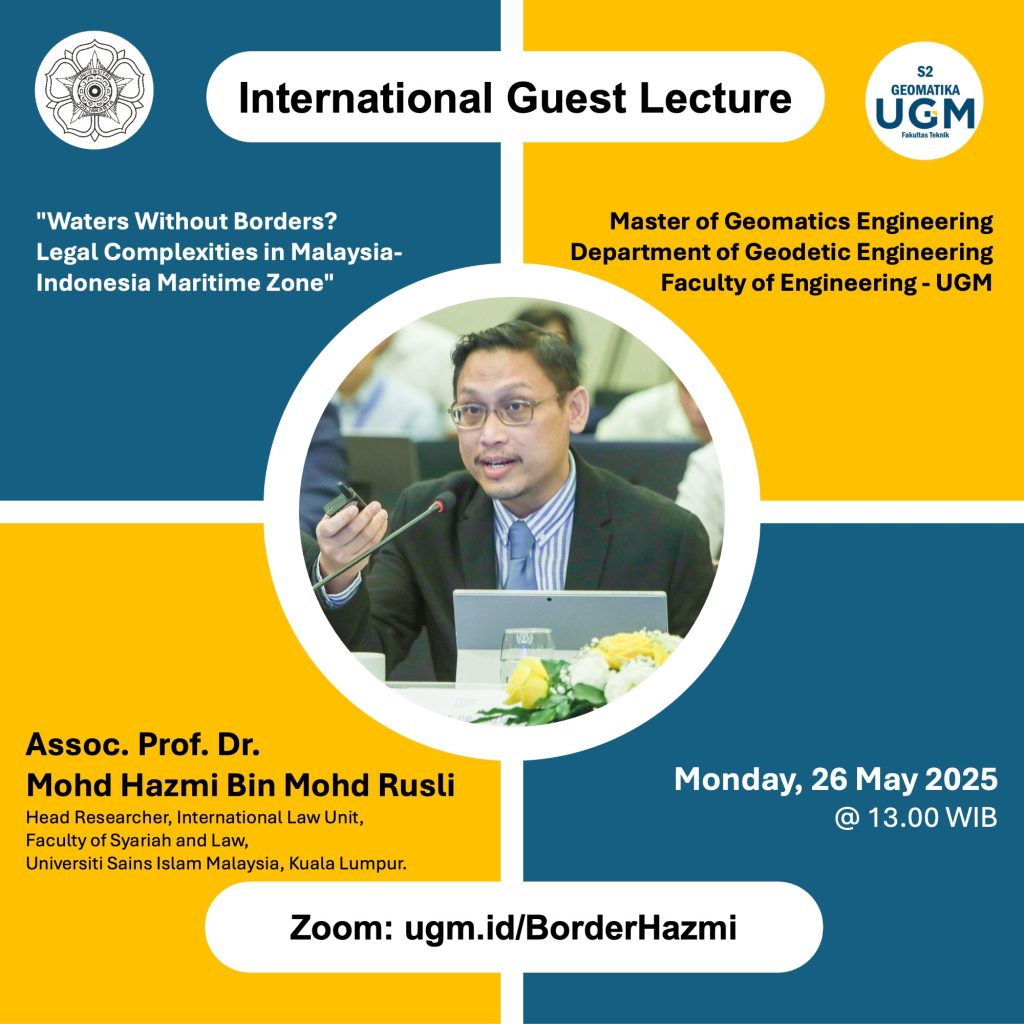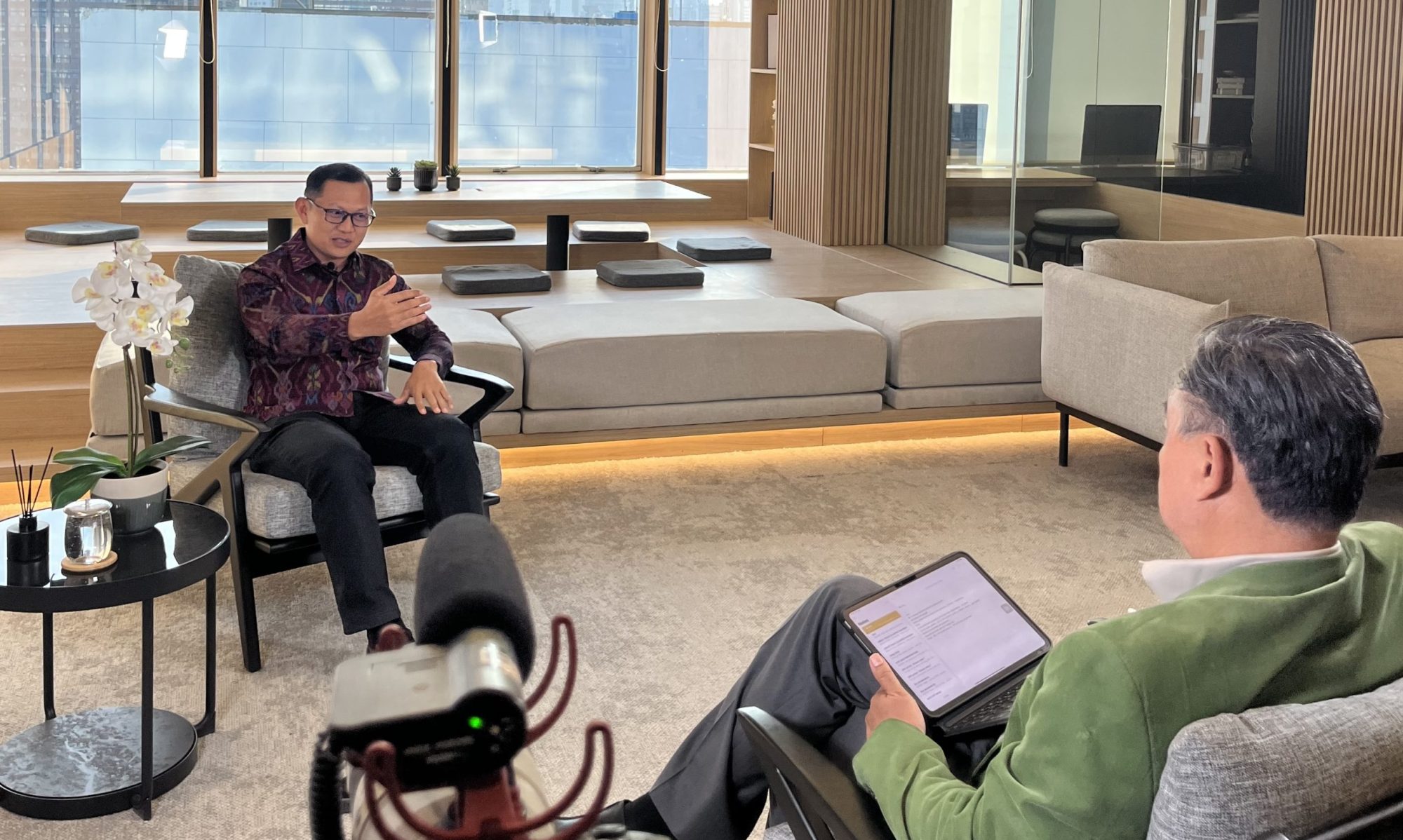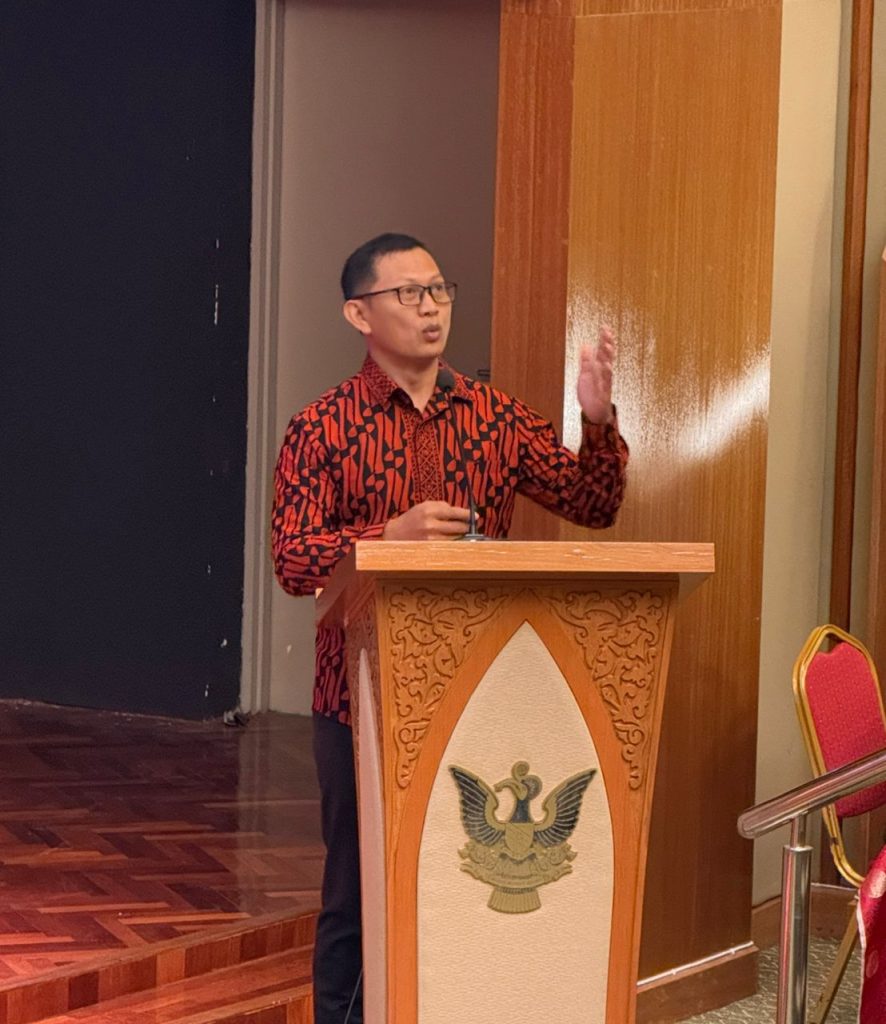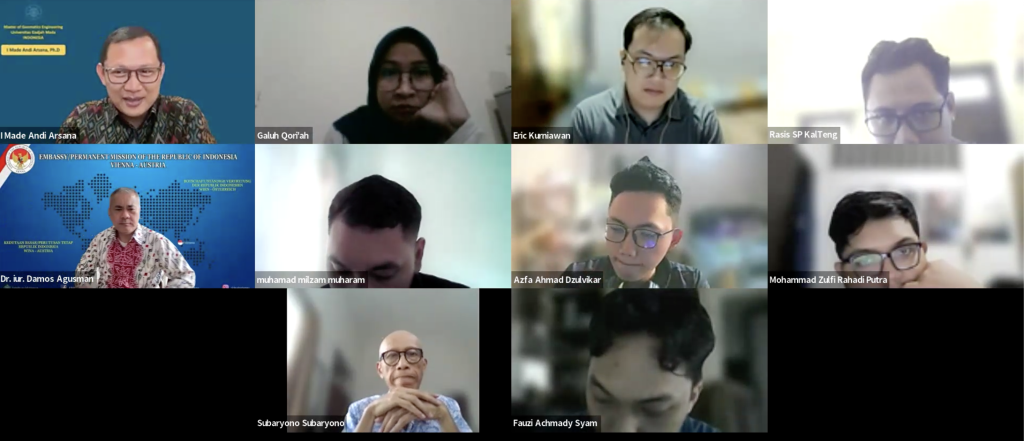On 26 May 2025, I had the pleasure of welcoming Associate Professor Hazmi Rusli as a guest lecturer in my Master’s course at the Geomatics Engineering Program, Universitas Gadjah Mada. A/P Hazmi delivered a lecture on the complex and often sensitive topic of Indonesia–Malaysia border issues. Though the session was held online, the impact was as strong as if it were in person. I invited him not only as a fellow academic but also as an old friend—I’ve known Hazmi since 2009, back when we were both graduate students at the University of Wollongong. For me, this lecture was more than an academic event; it was a beautiful example of how genuine friendship can evolve into meaningful professional collaboration.

The main audience of this session was my class on Border Management and Maritime Boundary Delimitation, a core course in the Master’s program. Over the past few weeks, we’ve explored theories and frameworks related to border governance. But theory needs grounding, and that’s precisely what A/P Hazmi provided—a real-world view from the Malaysian side of the border. His insights were not only timely but deeply relevant, offering students a richer, more nuanced understanding of what cross-border issues look like in practice.
Continue reading “Understanding Indonesia–Malaysia Border Issues Through the Eyes of a Malaysian Scholar”








